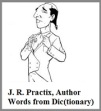De-escalate: (v) to decrease in intensity, magnitude, etc.
It is something I’ve always done.
I never gave it much thought.
To me it just made sense.
For you see, taking the first reaction of a human being who has been startled or hurt is not only unfair—it is not representative of who they are.
I do believe there is a childish portion in each one of us that wants to be offended so we can receive sympathy from those around us about being slighted.
But if you have just run into someone’s car and you’re informing them of that fact, and you expect them to give you a calm, measured response, you just might be evil.
Human beings should be given a chance to de-escalate from their initial response.
I don’t care what it is.
I don’t care if you think they should be more mature.
None of us are.
If we have a moment and realize how poorly we have handled our initial reaction, we often will mellow, apologize and gather our notions in a more thoughtful way.
But we need that time.
We need that mercy.
We need to understand that the first words that come out of somebody’s mouth when he or she feels offended are not conciliatory nor particularly kind.
They are bitter.
They are scolding words looking to heap damage.
It won’t hurt us to give our fellow human beings a chance to get over that initial pain—de-escalate and find a better reaction.
It does require that we have the maturity to know:
First reactions don’t count.
Each one of us deserves an opportunity to reflect and do better.





